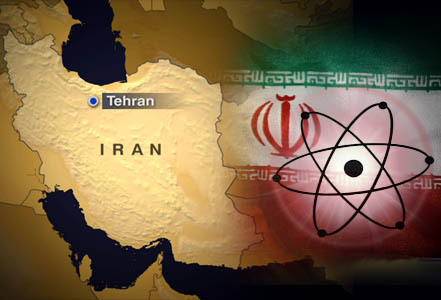Three months after President Trump pulled out of the Joint Comprehensive Plan Of Action (JCPOA), better known as the Iran nuclear deal on August 6, 2018, he unilaterally reinstated sanctions on the Islamic Republic of Iran. On this occasion he stated: “Our policy is based on a clear-eyed assessment of the Iranian dictatorship, its sponsorship of terrorism, and its continuing aggression in the Middle East and all around the world.”
Predictably, the foreign ministers of NATO expressed their collective “deep regret” over the President’s executive order. To further demonstrate their collective miscomprehension of reality, the European Union issued a “blocking statute” to protect European businesses from the renewed sanctions. To add insult to injury, European foreign policy guru Federica Mogherini and the foreign ministers of Great Britain, France, and Germany stated that they are committed to the “preservation and maintenance of effective financial channels with Iran, and the continuation of Iran’s export of oil and gas.” On the other hand, just a week ago, the German Chancellor Angela Merkel prevented Iran from lifting $400 million in dollar reserves kept in Frankfurt am Main. Indeed, the European Union’s policies toward Tehran are an exact reflection of its discombobulated state of affairs inside the organization itself. For good measure, quoting an unnamed senior American administration official, the Associated Press noted that the United States of America is “not particularly concerned” by such efforts to shield the European firms for American reprisals.
On his part, President Trump reiterated in his executive order a part of his speech of May 8, 2018, in which he characterized the 2015 agreement as a “horrible one-sided deal” that left the Iranian Mullahcracy flush with cash to finance Tehran’s wars across the Middle East. Preventing the Mullahs to continue the financing of their policies under the Khomeini doctrine of permanent revolution, the new sanctions aim at the regime’s foreign currency reserves, transportation sector, commodities, and its onerous foreign debt. More importantly, Khamenei and his fellow travellers know that President Trump is not the appeaser Barack Hussein Obama was. With the additional sanctions on Iranian oil and gas exports kicking in on November 5, 2018, the Mullahs will have an enormous crisis on their bloody hands. As President Trump said: “In November they (namely the sanctions, my comment) ratchet up to yet another level. Anyone doing business with Iran will NOT be doing business with the United States. I am asking for WORLD PEACE, nothing less!”
The President of the Islamic Republic of Iran Hassan Rouhani characterized the executive order as “psychological warfare.” Answering directly to President Trump’s offer to negotiate, President Rouhani opined on the state television that his country is not in the mood to renegotiate the 2015 agreement. He also praised Europe for “resisting the Americans” in their call “to join the regime of sanctions.” In his speech to Iranian journalists, Foreign Minister Muhammad Javad Zarif also lashed out at the United States of America, Israel, and the Kingdom of Saudi Arabia. Exhibiting more a wishful thinking than an accurate description of the real situation he said: “Their oppressive policies and violent measures have made them isolated….The world has distanced itself from their hostile policies against Iran.”
Yet the Mullahs and their oppressed subjects do not exist in a bubble. What had happened to Iran in the last four decades has not been a chain of haphazard and isolated events. These events can best be best described as have been rooted partially in the religious cult of Shi’ism and partially by a much larger phenomenon, namely the spread of what I will call simulated democracy coupled with fake capitalism across the globe. Regimes, like the Iranian Mullahcracy, that embrace simulated democracy do not have real democracy. They do not have real opposition. To wit, the Gleichschaltung, the standardization of the entire society, and the elimination of all opposition within the political, economic, religious, and cultural institutions, have given birth to permanent despotism, official cruelty, and destructive corruption. This, coupled with fake capitalism, which means the monopolization of the economy by the state and mostly its oppressive organizations, have made it almost impossible for businesses not connected to the state to function at all. In this economy, in which there is no free market, there is no competition, and everybody is busy to get in the good graces of the all powerful state, corruption and nepotism suffocate the financial system as well as the whole economy. Hence, the steady waves of a decade old riots and upheavals against the Mullahcracy. Hence, the increasing cruelty of the regime. And hence, the looming implosion of the Islamic Republic of Iran.
Over and above these rotten structures hovers the corrupted ideology of the Velayat-e-Faqih. Essentially, this invention of Ayatollah Khomeini is a hybrid. On the one hand, it means the absolute and unquestionable rule of the highest Shi’a clergy. On the other hand, it is a surreptitious nostalgia for the glorious Persian past with large doses of victimhood, martyrdom, never ending sorrow, and grief. It is not by coincidence that the Mullahs, starting with the Supreme Leader Seyed Ali Hosseini Khamenei, richly lace their public utterances lately with old Persian sayings. Regrettably, they never quote Idries Shah’s saying from his seminal work, the Caravan of Dreams. In it, there are two sentences that they should pay increased attention to: “To test that which has been tested is ignorance. To try to test something without the means of testing is even worse.”
President Trump has already been tested by Europe, China, Russia, and North Korea. In all these cases, he has been been true to his promises. It would be a monumental miscalculation for the Mullahs to ignore the differences between him and his woefully incompetent predecessor. Therefore, the Hamletian alternatives of the Mullahs are to resist or not to resist. On balance, the latter appears to be a better choice.
